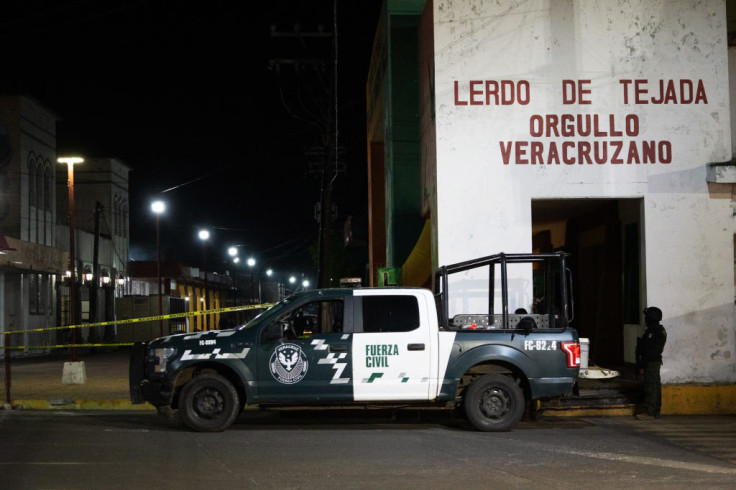
Intelligence agencies, along with federal, military and civil authorities, are currently investigating the alleged involvement of police chiefs and local public officials with criminal groups in the Mexican state of Veracruz.
At least 10 municipalities in northern Veracruz are under federal investigation for suspected ties to criminal organizations, which have engaged in activities such as widespread extortion.
As Milenio reported, news of collaboration between public officials and police officers with criminal organizations emerged after authorities discovered the human remains of at least six individuals along the Poza Rica-Cazones highway in early August.
Sources consulted by the outlet said some of the investigations in the municipalities are being conducted with the support of the Veracruz Attorney General's Office, while others are being carried out covertly in an effort to dismantle criminal cells linked to the Mafia Veracruzana, also known as Grupo Sombra, a criminal group that formed in 2012 following internal disputes within the Gulf Cartel and Los Zetas.
Recent outbreaks of violence across the state have prompted further investigations, as federal authorities suspect that criminal groups may be operating with the support of local governments.
In one of the most serious incidents in recent weeks, seven inmates were killed and 11 others injured during a prison riot in the municipality of Tuxpan, in northern Veracruz. As El País reported, inmates held control of the facility for more than 12 hours. In videos shared on social media, several men alleged they were being extorted by members of Grupo Sombra, prompting a federal investigation.
Tuxpan is one of the municipalities flagged in the federal probe, along with Pánuco, Álamo, Tihuatlán, Poza Rica, Papantla, Martínez de la Torre, Tecolutla, Tempoal, Naranjos, Ozuluama and Chontla.
According to Milenio, more than 30 people were killed in the municipalities of Tuxpan, Papantla, Poza Rica and Álamo during August alone, amid violence largely driven by criminal groups engaged in "cobro de piso,"a form of extortion in which organized crime demands regular payments from business owners under threat of violence.
As part of the investigation, authorities also uncovered evidence linking municipal and state officials to the possession of high-caliber firearms and explosives.
As El País also noted, at least four major cartels—the Cártel Jalisco Nueva Generación, the Gulf Cartel, the Noreste Cartel and the Sinaloa Cartel—operate in Veracruz, drawn by its strategic location near commercial ports and key drug trafficking routes.
In early August, President Claudia Sheinbaum launched a national strategy to combat extortion, a key driver of fear, economic instability and criminal control in states like Veracruz
The strategy is built around five central pillars: increasing arrests through intelligence and investigative efforts; encouraging the creation of state-level anti-extortion units; implementing a specific protocol to support victims; training emergency hotline operators in crisis management and negotiation; and launching a nationwide public awareness campaign.
"Arresting those who commit this crime is a direct way to protect the livelihood of thousands of working families who, every day, through effort and honesty, run businesses, grow crops, transport goods or provide services," said Security Secretary Omar García Harfuch during the plan's announcement, as reported by CNN.
The initiative also includes operations in prisons to stop extortion calls made from inside correctional facilities, the use of the Financial Intelligence Unit (UIF) to freeze accounts linked to extortion, and the judicial blocking of phone lines used for criminal purposes.
According to government data, the strategy targets eight states where 66% of reported extortion cases are concentrated: the State of Mexico, Guanajuato, Nuevo León, Mexico City, Veracruz, Jalisco, Guerrero and Michoacán.
© 2025 Latin Times. All rights reserved. Do not reproduce without permission.







